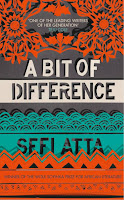New David Whitaker related information!
This short memoir by Robin Squire was recommended to me by Doctor Who assistant location manager Alex Moore, who I quizzed for Doctor Who Magazine last year. I knew Squire's name as, in 1981 story Logopolis, he plays the technician at Jodrell Bank* too busy listening to music to notice a TARDIS materialise behind him. He's also credited for small roles in The Daemons (1971) and Full Circle (1980).
Before these credited roles, Squire spent some four months as a trainee script editor in the Doctor Who production office - and kept a diary. His book recounts the period 1965-69, beginning with his backpacking trip across France where he saw the Beatles play a gig in Nice on 30 June 1965. As he says, Beatles histories can tell us the set list played that night but he can add extra detail, such us what the warm-up acts were and how the audience responded (p. 36).
Based on this gig and then a chance encounter with the former manager of a band, Squire wrote a novel about a band, Square One, published on 5 August 1968. At the time of publication, his wife had just given birth and Squire went for a pint with a neighbour whose wife was on the same labour ward. That neighbour was Terrance Dicks, who a few months later told Squire about a short-term trainee job going in his office at the BBC.
So, from the end of June to early November 1969, Squire was based at a desk in room 505 on the second floor of Union House, Shepherds Bush Green - and the home for nearly 27 years of the Doctor Who production office. Arriving for his first day at the “surprisingly late hour of 10 am”, Squire was met on the main door by a “uniformed commissionaire” (p. 71) and instructed to, “Take the lift to second floor. Third door on the left.”
There he found a, “small and dusty-seeming office,” with Dicks “behind a desk to the right, beside the window looking out over the Green ... To my right was an open door leading through to the producer’s office.” Peter Bryant shared that office with production secretary Sandra Brenholtz, whose job involved “all the correspondence” as well as “typing out scripts and production schedules and the Lord only knew what else on an electric typewriter” (p. 72). The producer’s desk was bigger than his secretary's and behind it was a “huge white plastic chart on which was written in black marker pen the forthcoming programmes, with studios times and dates, director, writer and so on” (pp. 72-3). Squire turned up for his first day in a suit; Dicks, in jeans and open-necked shirt, told him not to do that again.
Dicks then walked Squire round the corner to Lime Grove Studios - though Doctor Who was no longer made there (the last Doctor Who made there was the first episode of The Space Pirates, recorded in February). There they bumped into Patrick Troughton - even though, as Squire says, he'd recorded his last scenes as the Doctor a week or so previously. They also saw the TARDIS set, presumably in storage. Squire says it looked “tatty and worn ... Terrance said that on a black and white monitor the well-worn aspect didn’t show, but when transmission changed to colour early next year, it would.”
Soon enough, Squire attended filming on Spearhead from Space, the first Doctor Who to be made in colour. He was initially there as a spare body but got roped into playing an Auton and later worked as the unit driver, for which he had to take the BBC's own driving test. There's lots of detail here - dates he was and wasn't on location, the name of the hotel where the principal cast and crew were based and the names of its landlords, what was involved in shooting on location and what it felt like to be in that costume. We're told what he got up to on his day's off and what music was playing on the radio, which he still associates with that period.
This all helps conjure a richer, fuller picture of what went on than we get from the production paperwork in the BBC's written archive. Yes, I have alerted David Brunt about this for when he gets to the relative volume of his production diary.
On one occasion, script editor Derrick Sherwin showed Squire a script for something other than Doctor Who - probably Project Air One, on which he was working with Peter Bryant at the same time.
“But apart from that, and despite apparently being a trainee script editor, I received no training in script editing, but sat at a desk at the side of Terrance’s office where I was given the work of answering letters from fans and followers of the programme.” (p. 75)
That meant he was there as writers came into the office to discuss their scripts for the 1970 series of Doctor Who. Squire recalls meeting Robert Holmes, going to the home of Malcolm Hulke and even devising the storyline given to Don Houghton to write up as Inferno. That leaves one other writer from that year; he mentions David Whitaker in passing on page 81.
“I never met him,” Squire told me yesterday but “there was still talk about David Whitaker.” This was because, as Squire told me unprompted, of David's mission to Moscow in July 1969 on behalf of the Writers' Guild to protest the treatment of Solzhenitsyn, and the storm that followed. As described in my
book, David, his wife and colleagues were subjected to poison-pen letters and phonecalls. In 2017, I asked both Terrance Dicks and Derrick Sherwin about this and whether such letters have been received at Union House. Neither of them could remember - but then they'd not been the ones to deal with correspondence.
“At the time I was at the Doctor Who office,” Squire told me, unbidden, “angry messages were continuing to come in along the lines of 'David Whitaker, traitor', for not having spoken up.”
For more details about and to order your own copy of
The Life and Times of a Doctor Who Dummy, see
Robin Squire's website.
* Yes, Jodrell Bank, as confirmed in Spyfall (2020).





















